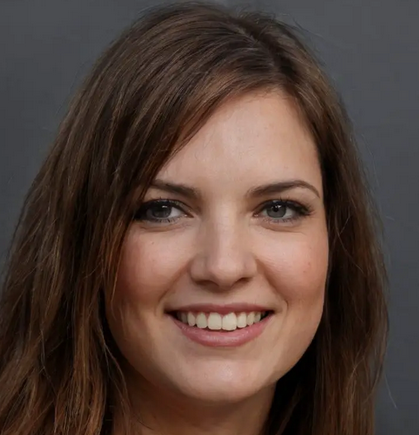Politics
MEP Peter van Dalen’s Farewell to the European Parliament
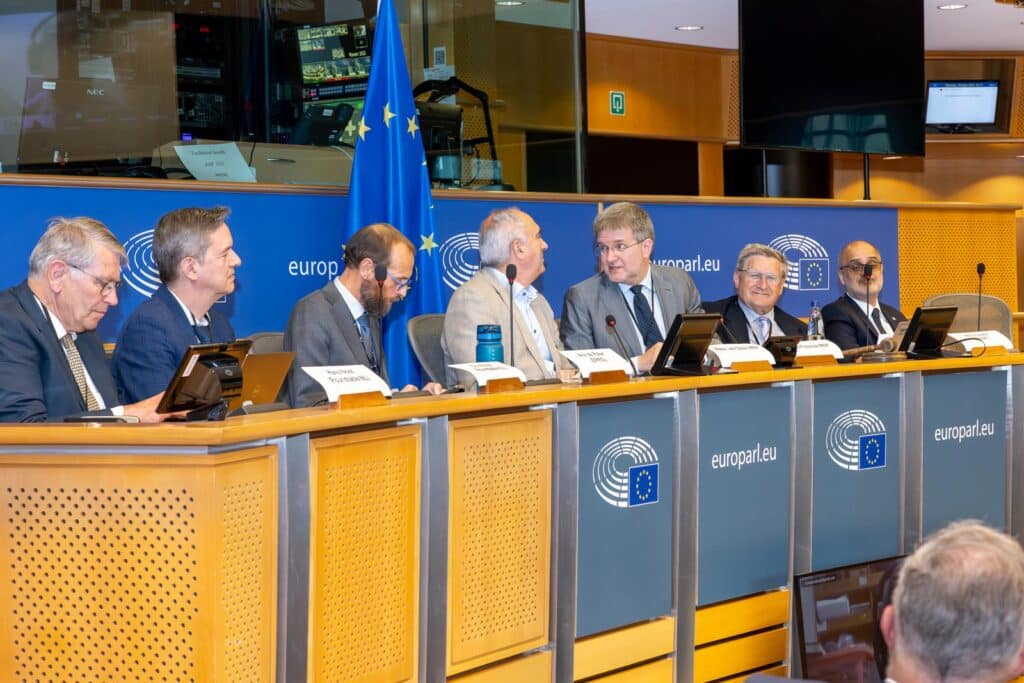
MEP Peter van Dalen (Christian Union) has announced today on his website his departure from the European Parliament, concluding a remarkable tenure spanning over 14 years. Upon the request of the national executive of the Dutch Christian Union, Van Dalen makes way for Anja Haga, the next candidate on the party’s list, to continue their important work.
Upholding Freedom of Religion or Belief
Throughout his tenure, one of the causes closest to Peter Van Dalen’s heart has been the promotion of religious freedom in Europe and across the globe. He played a pivotal role in co-founding the European Parliament’s Intergroup on Religious Freedom and was instrumental in the establishment of a Special Envoy on Religious Freedom within the European Union. Notably, Van Dalen organized the highly esteemed European Prayer Breakfast, an annual event that attracted dignitaries and visitors from around the world for many years.
Van Dalen underscores the ongoing significance of prioritizing religious freedom, stating:
“More and more Christians worldwide are being persecuted, but at the same time, attention to this growing issue is waning in Europe. This is a very worrying development. Many colleagues do not seem to appreciate the seriousness of this.”
Reflecting on his impactful initiatives, Peter Van Dalen recalls two cases that stand out: the release of Christian Asia Bibi and the Christian couple Shagufta & Shafqat, who were unjustly held on Pakistani death row for several years on charges of blasphemy. From his position in the European Parliament, Van Dalen exerted pressure on the Pakistani government, working closely with Pakistani lawyer Saïf-ul-Malook, to secure their freedom and advocate for the abolition of blasphemy laws. These successes highlight the efficacy of Van Dalen’s unwavering commitment to religious freedom.
Furthermore, Van Dalen has consistently championed the rights of the people of Armenia and the Armenian enclave of Nagorno-Karabakh. The population, predominantly Christian, has long endured oppression from Azerbaijan, an issue that has been largely overlooked by the international community. Van Dalen strongly believes that Europe should provide support to the Armenians in their struggle against belligerent Azeris. Encouragingly, EU foreign chief Borrell recently pledged to take action on this matter, signalling progress towards addressing the ongoing challenges faced by these communities.
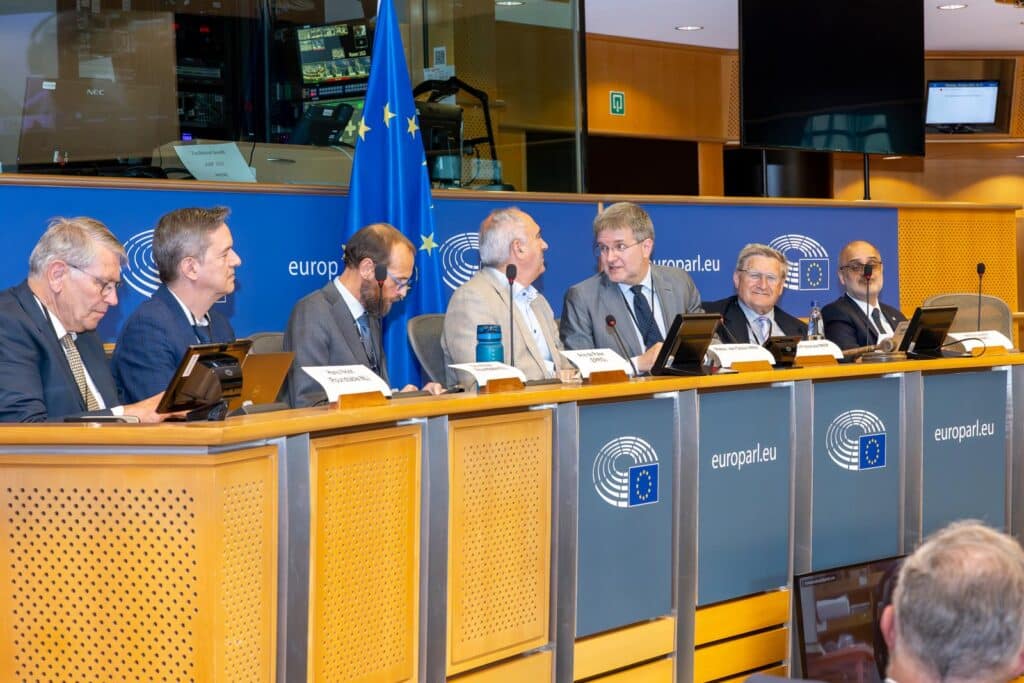
Additionally, van Dalen made significant contributions to the development of the European Union Guidelines on Freedom of Religion or Belief. Recognizing the pressing need for a comprehensive framework to safeguard this fundamental human right, Van Dalen played a pivotal role in shaping these guidelines. His expertise and commitment to religious freedom were instrumental in ensuring that the guidelines not only addressed the challenges faced by Christians but also encompassed the broader spectrum of religious communities across Europe.
Peter Van Dalen’s tireless efforts in this regard have left a lasting impact, providing a crucial reference for policymakers and stakeholders working towards the protection and promotion of religious freedom within the European Union, and just the day before announcing his departure, he hosted (together with MEP Carlo Fidanza, Human Rights Without Frontiers, EU Brussels FoRB Roundtable and the Netherlands FoRB Roundtable) a two hours conference within the framework of the 10th anniversary of the guidelines. The conference was well attended by civil society, university students and some MEPs, as well as representatives from different faiths and cosmovisions, from Evangelicals to members of the Church of Jesus Christ of the Later Day Saints, Scientologists and humanists among others.
Protecting the Fisheries Sector
Van Dalen has also been a staunch advocate for the fisheries sector during his time as an MEP. Serving as the vice-chairman of the fisheries committee in the European Parliament, he has witnessed the hardships faced by fishermen in recent years.
Recalling the struggles encountered, Van Dalen states:
“When I started working to preserve pulse fishing from 2017, the Netherlands was already virtually alone in Europe on this important file. More than some extension for use of that gear was unfortunately not in the cards. Combined with the Brexit, the fall in demand for fish during the corona pandemic and the introduction of the landing obligation, among others, our fishery was unfortunately dealt a heavy blow. Together with several Dutch MEPs, we tried all kinds of things to reverse this development, but failed. I deeply regret that. When I now see how many cutters are being scrapped, it turns my stomach.”
Passing the Torch to MEP Anja Haga
Anja Haga has been designated as Peter van Dalen’s successor. With a background as a former Fryslân state member and Arnhem alderman, Haga brings her expertise in nature and climate issues at the European level to the role. She anticipated that:
“It is important to make the Christian-social sound heard again and again. Religious freedom, creation and looking after our neighbour requires our full attention in the coming years, especially also at the European level.”
Peter Van Dalen’s Background
Peter van Dalen embarked on his political career as a policy officer supporting MEP Leen van der Waal in 1984, while affiliated with the RPF party. Since 2009, he has served as an MEP representing the Christian Union, now in his third term of office. In addition to his steadfast commitment to religious freedom and the fisheries sector, Van Dalen has actively engaged with topics such as the euro and the European Union’s foreign policy. Throughout his tenure, he consistently emphasized the importance of preserving the influence and decision-making power of EU member states.
Peter van Dalen’s departure from the European Parliament marks the end of an era characterized by dedication, resilience, and an unwavering commitment to advocating for religious freedom and the well-being of the fisheries sector. His legacy will undoubtedly inspire future generations of policymakers and activists to champion these causes, ensuring a more just and inclusive society within Europe and beyond.
Politics
Egypt: Council and European Parliament secure agreement on macro-financial assistance
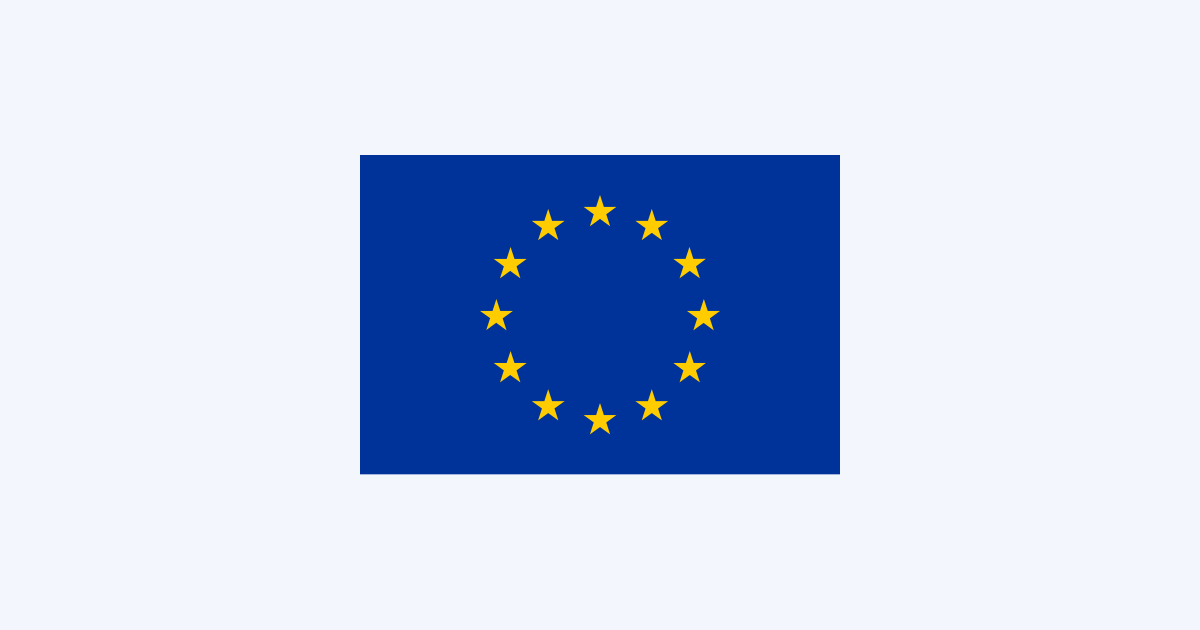
DISCLAIMER OPINIONS: The opinions of the authors or reproduced in the articles are the ones of those stating them and it is their own responsibility. Should you find any incorrections you can always contact the newsdesk to seek a correction or right of replay.
DISCLAIMER TRANSLATIONS: All articles in this site are published in English. The translated versions are done through an automated process known as neural translations. If in doubt, always refer to the original article. Thank you for understanding.
DISCLAIMER PHOTOS: We mostly used photos images that are readily available online, from free sources, or from the people promoting the news. If by any chance it happens that we have used one of your copyrighted photos, please do not hesitate to contact us and we will take it down without question. We do not make profits as this is a not for profit project to give voice to the voiceless while giving them a platform to be informed also of general news, and it is completely free.
Politics
Border management: Council and European Parliament strike agreement about progressive launch of Entry/Exit system

DISCLAIMER OPINIONS: The opinions of the authors or reproduced in the articles are the ones of those stating them and it is their own responsibility. Should you find any incorrections you can always contact the newsdesk to seek a correction or right of replay.
DISCLAIMER TRANSLATIONS: All articles in this site are published in English. The translated versions are done through an automated process known as neural translations. If in doubt, always refer to the original article. Thank you for understanding.
DISCLAIMER PHOTOS: We mostly used photos images that are readily available online, from free sources, or from the people promoting the news. If by any chance it happens that we have used one of your copyrighted photos, please do not hesitate to contact us and we will take it down without question. We do not make profits as this is a not for profit project to give voice to the voiceless while giving them a platform to be informed also of general news, and it is completely free.
Politics
How To Foster Economic Growth – Key Policies In European Politics
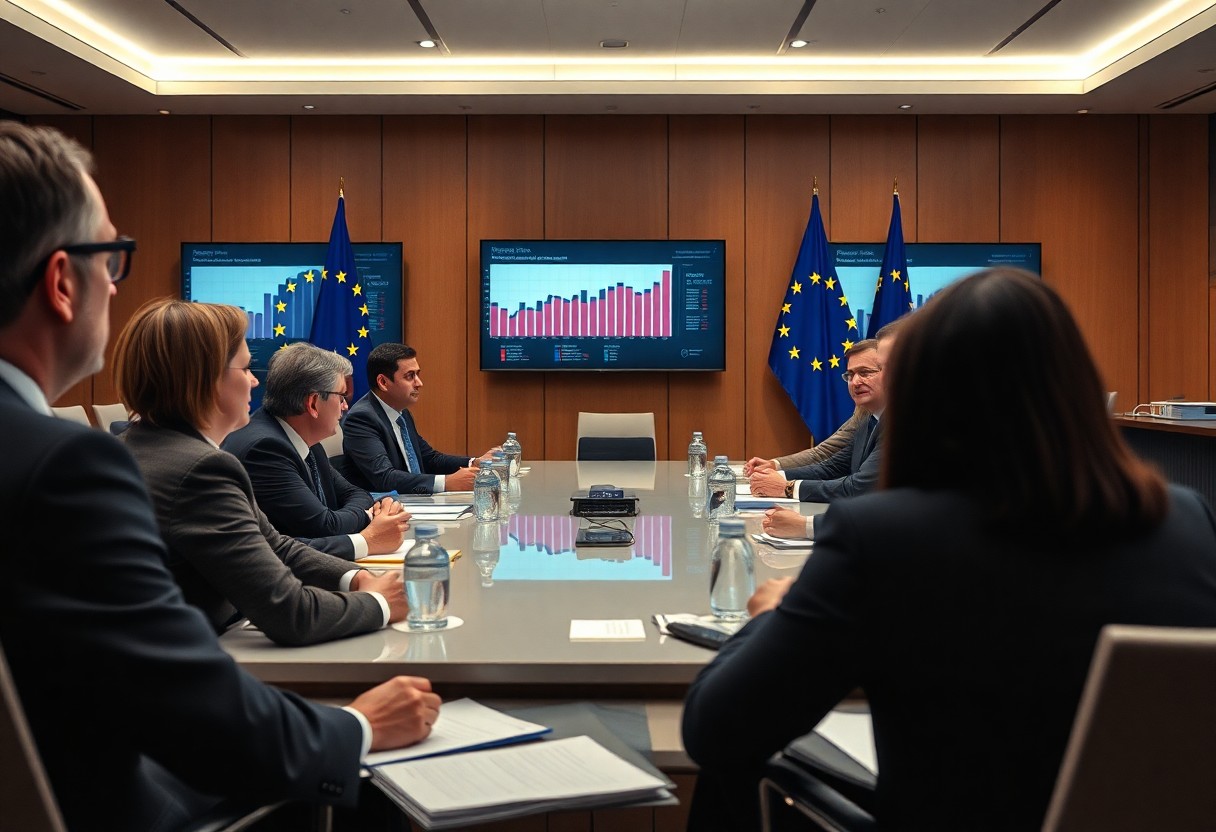
You can significantly influence economic growth by understanding and implementing key policies in European politics. Adopting measures such as fiscal stimulus, innovation support, and sustainable development can lead to enhanced productivity and job creation. Additionally, investing in education and infrastructure fosters a skilled workforce and strengthens the economy. By focusing on these policies, you can play a vital role in driving the economic progress of your region.
Understanding Economic Growth
The concept of economic growth refers to the increase in the production of goods and services in a country over time, typically measured by the rise in Gross Domestic Product (GDP). It is influenced by various factors, including labour, capital, technology, and policies that govern economic activities. Understanding these dimensions can help you appreciate how nations seek to enhance their prosperity and overall well-being.
Key Factors Influencing Economic Growth
Little do many realise, several key factors contribute to economic growth, determining the trajectory and success of a nation’s economy. These factors can be broadly categorised as:
- Human Capital – The skills and education levels of the workforce.
- Physical Capital – Investment in infrastructure and machinery.
- Technological Advances – Innovations that improve efficiency and productivity.
- Political Stability – A stable and transparent governance structure.
- Regulation and Tax Policies – The impact of various policies on business operations.
This combination of elements plays a fundamental role in fostering a productive environment, ultimately leading to sustained economic growth.
The Role of Government Policies
Growth within an economy can be heavily influenced by the set of policies that governments implement. These policies govern everything from taxation to trade regulations and can either stimulate or hinder economic activities. Governments can promote economic growth through investment in infrastructure, providing subsidies for innovation, and fostering a stable economic environment that encourages business development. Ensuring that your policies are aligned with enhancing productivity and global competitiveness can lead to long-term benefits for your economy.
Understanding the significance of government policies in economic growth is vital for grasping the broader economic landscape. In particular, policies aimed at strengthening education and workforce development can elevate human capital, while those that incentivise private sector investments can stimulate capital formation. However, it’s also vital to keep the risks in mind; poorly designed policies can result in market distortions and unintended consequences that may even stifle growth. Hence, careful consideration, analysis, and ongoing adjustments to these policies are paramount for fostering a thriving economy.
How to Implement Effective Economic Policies
While navigating the complexities of European politics, the implementation of effective economic policies necessitates a coordinated approach that addresses both immediate and long-term goals. A comprehensive strategy should encompass the consideration of EU budget and policy reforms to promote economic growth. By working with local authorities and stakeholders, you can ensure that policies are tailored to regional needs, fostering greater buy-in and proving imperative for sustainable development. Moreover, aligning your policies with EU objectives can attract funding and support that further enhance your initiatives.
Strategic Investments in Infrastructure
Investments in infrastructure are vital to catalysing economic growth. By prioritising physical assets such as roads, bridges, and public transport systems, you create an environment conducive to trade and mobility. Such infrastructure not only aids the movement of goods and services but also connects communities, enabling job creation and economic development. Furthermore, a well-maintained infrastructure is imperative for businesses to operate efficiently, reducing costs and increasing competitiveness in both local and international markets.
Creating a Favorable Business Environment
Little does it take to establish a robust business environment—your policies must encourage innovation and entrepreneurial spirit. By simplifying regulations and reducing bureaucratic hurdles, businesses can flourish and contribute to the economy actively. Consider creating tax incentive programmes designed to attract foreign direct investment and support small to medium enterprises, which are often the backbone of economic diversity. Moreover, facilitating access to financing through grants and loans can empower local entrepreneurs to scale their operations.
Policies aimed at creating a favourable business environment can significantly impact overall economic growth. Access to reliable information regarding market opportunities and support systems for small businesses can boost their confidence in taking risks to innovate. Additionally, strengthening intellectual property rights safeguards encourages creativity and investments in research and development. However, it is vital that these policies are monitored and evaluated, ensuring that they adapt to changing market conditions and effectively meet the evolving needs of businesses in your area.
Tips for Enhancing Innovation and Competitiveness
Assuming you aim to enhance innovation and competitiveness within your region, adopting targeted strategies can play a significant role. Key policies to consider include:
- Utilising public-private partnerships to stimulate innovation
- Implementing fiscal incentives for research and development
- Enhancing education and training programmes to build a skilled workforce
- Promoting international collaboration for knowledge exchange
The integration of these policies can lead to a more robust economic environment where innovation thrives. For further insights, you can explore the Full article: EU Cohesion Policy and spatial economic growth.
Encouraging Research and Development
There’s a pressing need for societies to encourage research and development (R&D) as a means to drive economic growth. By increasing the funding available for R&D projects, you can foster a culture of curiosity and exploration that ultimately leads to groundbreaking innovations. Partnerships between educational institutions, public entities, and private industry are integral to creating a dynamic research ecosystem that delivers real-world applications.
Supporting Startups and Small Businesses
Development of new enterprises is crucial in cultivating a competitive landscape. By prioritising policies that support startups and small businesses, you can invigorate your local economy. This can include providing access to financing, easing regulatory burdens, and offering mentorship programmes. These initiatives not only create job opportunities but also enhance the overall economic resilience of your community.
Another vital aspect of supporting startups and small businesses is the establishment of innovation hubs or incubators. These environments foster collaboration among entrepreneurs, enabling them to share resources and ideas. By concentrating support in these hubs, governments can help these enterprises develop their products and services more effectively, ultimately leading to higher levels of competitiveness and innovation within the economy. The focus on nurturing entrepreneurship will ensure a vibrant business landscape that contributes to sustained economic growth.
Promoting Sustainable Economic Practices
After recognising the significance of sustainability in economic growth, it becomes imperative for policymakers to adopt and promote sustainable economic practices. These practices not only stimulate growth, but also ensure that future generations have the resources they need. By implementing robust sustainability frameworks, European nations can achieve a balanced approach that preserves the environment while fostering innovation and productivity. You have a role to play in advocating for policies that integrate sustainability into the core of economic development, emphasizing the long-term benefits for both the economy and the planet.
Balancing Growth with Environmental Sustainability
While pursuing economic expansion, you must understand the importance of protecting the environment. Policymakers face the delicate task of ensuring that development does not come at the expense of ecological health. By prioritising eco-friendly practices, such as reducing carbon emissions and investing in renewable energy, you can contribute to a framework that safeguards natural resources while allowing for growth. This balance is not merely desirable; it is imperative for achieving a resilient economy in the face of environmental challenges.
Integrating Green Technologies
Integrating sustainable technologies into your economic practices represents a significant step towards a greener future. You can advocate for the use of renewable energy sources, such as solar and wind power, which not only reduce reliance on fossil fuels but also stimulate job creation within the green sector. Furthermore, adopting energy-efficient technologies can lower operational costs for businesses, translating into a more competitive market. This paradigm shift towards sustainability reflects the growing recognition that environmental stewardship is not only beneficial for the planet, but can also lead to economic resilience and innovation.
The adoption of green technologies can have transformative effects on your local and national economies. You may find that investing in clean energy solutions results in new job opportunities across various sectors, from manufacturing to installation. Additionally, by encouraging resilience through sustainable practices, you contribute to a more stable economy that is better equipped to handle future environmental challenges. It is clear that integrating these technologies not only fosters a cleaner planet, but can also yield significant economic rewards for your community.
Fostering International Trade Relations
Once again, establishing robust international trade relations can significantly enhance your economy’s competitive edge and create opportunities for businesses to flourish. You must recognise that trade allows goods, services, and capital to flow seamlessly across borders, thereby fostering economic interdependence and collaboration. By actively engaging in international trade, you can diversify your markets, reduce reliance on domestic production, and stimulate growth in various industries. This strategy is not only beneficial for major players but can also enable smaller enterprises to reach wider audiences, ultimately increasing overall economic resilience.
Building Strong Trade Agreements
Even in a rapidly evolving global landscape, crafting strong trade agreements remains fundamental to boosting your international relations. These agreements provide a framework that governs trade negotiations, tariffs, and regulatory standards between countries, which can effectively facilitate smoother trade flows. As you explore potential alliances, ensuring that agreements are mutually beneficial should be your top priority; this will help to harness opportunities for innovation, investment, and job creation. Engaging with multiple trading partners creates a dynamic environment that can enable you to adapt quickly to changes in global markets.
Overcoming Trade Barriers
Fostering trade relations often entails overcoming inherent trade barriers that can hinder economic growth. Such barriers may include tariffs, import quotas, and regulatory discrepancies that complicate the trading process. Actively working to reduce or eliminate these obstacles will enhance your access to international markets and secure a competitive advantage. A focused approach on negotiation and collaboration with other nations allows you to navigate these challenges effectively and ultimately improves trade conditions benefiting all parties involved.
Agreements crafted to address and dismantle trade barriers are crucial for enhancing your country’s position in the global market. By actively reducing tariffs, subsidies, and regulatory hurdles, you create a more accessible trading environment that encourages investment and innovation. Moreover, streamlined trade processes can lead to a decrease in product costs, ultimately benefiting consumers and improving economic welfare. It is in your best interest to seek continual dialogue with trading partners, ensuring that impediments are addressed swiftly, resulting in a more interconnected and thriving global economy.
Ensuring Social Equity in Economic Growth
Your understanding of social equity is crucial for fostering sustainable economic growth. This involves implementing policies that ensure all societal segments benefit from economic advancements, rather than just a select few. Achieving this balance can enhance both social cohesion and economic stability, which are vital for long-term prosperity. You must consider how the impact of economic policies can lead to disparities that not only affect individuals but the society at large, as inclusive growth tends to stimulate greater overall economic performance.
Addressing Income Inequality
Economic disparities can significantly hinder progress and create friction within communities. By tackling income inequality, you can foster a more inclusive environment where everyone has an opportunity to thrive. Adopting progressive tax systems, increasing access to quality education, and enhancing social safety nets are crucial steps in ensuring that economic possibilities are not confined to the wealthy. These measures not only contribute to equitable wealth distribution but can also stimulate demand, as more individuals with purchasing power can lead to a more dynamic economy.
Promoting Worker Rights and Benefits
Assuming social equity is to be achieved, it is necessary to focus on promoting the rights and benefits of workers. Providing a fair wage, ensuring safe working conditions, and supporting job security are fundamental aspects that contribute to a more stable workforce. By upholding worker rights, you empower individuals to feel valued and secure, which can, in turn, drive productivity and innovation within industries. Ensuring that workers are treated equitably not only benefits them personally but also enhances the overall economic landscape.
The relationship between worker rights and economic growth cannot be overstated. Initiatives such as improved paid leave, affordable healthcare access, and the right to unionise foster a sense of security among workers that leads to higher retention rates and job satisfaction. When investments are made in employees, the return is often measured in increased productivity and decreased turnover costs, fostering a more resilient economy. Failure to promote these rights can result in unrest and economic inefficiency, highlighting the need for balanced and proactive policies that champion the dignity of labour.
Summing up
Presently, fostering economic growth in Europe demands a comprehensive understanding of key policies that can shape your approach to development. By investing in innovation and enhancing digital infrastructure, you can create an environment conducive to entrepreneurship and high-tech industries. Furthermore, promoting sustainable practices will not only address environmental challenges but also open new avenues for green jobs and investments. Adopting such policies ensures that your economic strategy is aligned with broader societal values and future trends.
In addition, improving labour market conditions through policies that promote education and training is imperative for equipping your workforce with the necessary skills to thrive in an evolving economy. Engaging with cross-border cooperation and regional integration will also enable you to tap into broader markets and resources. By focusing on these key areas, you can play a vital role in shaping an economic landscape that drives growth and prosperity across Europe. Your commitment to these policies can ultimately lead to a more resilient and dynamic economy for all stakeholders involved.
FAQ
Q: What are the main policies that European countries can implement to foster economic growth?
A: European countries can adopt several policies to stimulate economic growth, including investing in infrastructure, encouraging innovation and research, implementing sound fiscal policies, promoting trade agreements, and supporting small and medium-sized enterprises (SMEs). By enhancing infrastructure, they improve connectivity and efficiency. Investment in innovation and research leads to new technologies and industries, while sound fiscal policies create a stable economic environment. Trade agreements can broaden markets for European goods, and support for SMEs drives job creation and local economies.
Q: How does fiscal policy impact economic growth in Europe?
A: Fiscal policy plays a significant role in influencing economic growth. By adjusting government spending and taxation, policymakers can stimulate or restrain economic activity. For example, increased public spending on infrastructure can create jobs and boost demand, while tax cuts can enhance disposable income for consumers. Conversely, tight fiscal measures can help control inflation but may dampen growth. European countries must find a balanced approach that encourages investment without leading to unsustainable debt levels.
Q: In what ways does innovation drive economic growth in European nations?
A: Innovation is a key driver of economic growth as it leads to increased productivity, the creation of new markets, and improved competitiveness. European nations can foster innovation by investing in research and development (R&D), providing incentives for businesses to innovate, and supporting education and training to create a skilled workforce. Countries that prioritise innovation are more likely to adapt to global market changes and attract foreign investment, thereby enhancing their overall economic performance.
Q: How significant is trade liberalisation for economic growth in Europe?
A: Trade liberalisation carries great significance for economic growth in Europe. By reducing trade barriers and tariffs, countries can enhance export and import activities, leading to increased competition and efficiency. This enables businesses to access larger markets and reduces prices for consumers. Furthermore, trade liberalisation encourages foreign direct investment, fostering innovation and creating jobs. However, it is vital for countries to negotiate trade agreements that protect their economic interests while promoting open markets.
Q: What role does support for small and medium-sized enterprises (SMEs) play in stimulating economic growth?
A: Support for small and medium-sized enterprises (SMEs) is vital for stimulating economic growth as they are often the backbone of European economies, contributing significantly to job creation and innovation. Policies that facilitate access to financing, reduce regulatory burdens, and provide support for entrepreneurship can help SMEs thrive. By fostering a conducive environment for these businesses, European countries can enhance economic diversification, increase competitiveness, and generate employment opportunities within local communities.
-

 EU & the World6 days ago
EU & the World6 days agoWho Is Valeria Marquez? About the Influencer Who Was Shot During Livestream
-

 EU & the World4 days ago
EU & the World4 days agoChris Brown Tour 2025: Updates on Concert Dates, Cities, Ticket Prices & More
-
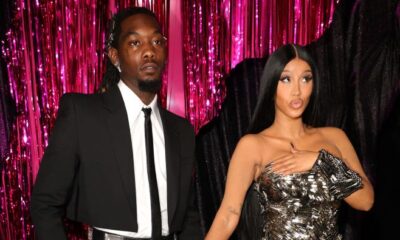
 EU & the World7 days ago
EU & the World7 days agoCardi B & Offset’s Relationship Timeline: From Marriage To Cheating Drama & Split
-
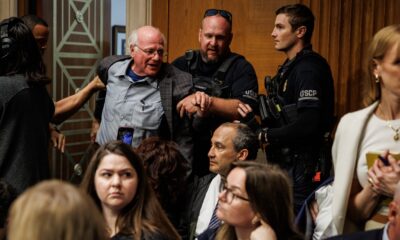
 EU & the World5 days ago
EU & the World5 days agoWho Is Ben Cohen? About the Ben & Jerry’s Co-Founder Who Was Arrested During Senate Hearing
-
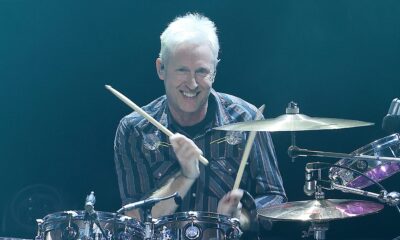
 EU & the World3 days ago
EU & the World3 days agoJosh Freese: 5 Things to Know About the Former Foo Fighters Drummer
-
Travel6 days ago
Crete earthquake: Is it safe to travel to the Greek island following tsunami warning?
-
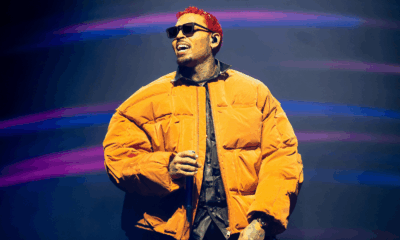
 EU & the World5 days ago
EU & the World5 days agoChris Brown’s Net Worth: How Much Money He Makes Now
-

 Entertainment4 days ago
Entertainment4 days agoEurovision 2025: Music, Politics, and the Final 26 Set Amid Controversy and Spectacle

